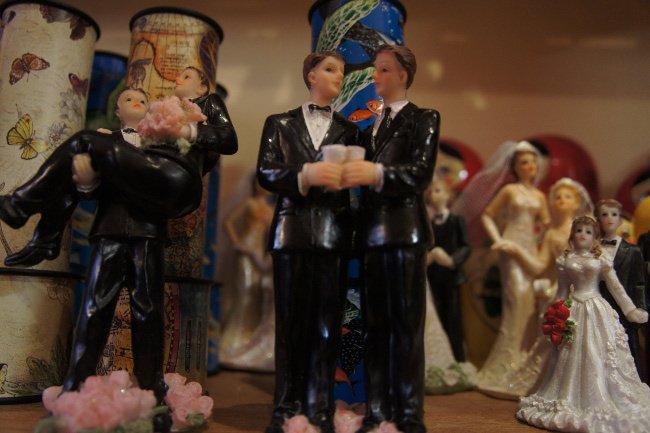Exciting news this morning – we have a date for the first same-sex marriages in Scotland. The date is within this year – just. The first day on which most couples will be able to get married will be 31 December 2014, the day known in Scotland as Hogmanay. There’s going to be some parties north of the border that night, I can tell you.
The law will actually change in mid-December, as expected but the Scottish Government has delayed its proposal to increase the notice period to 28 days. Thus, same-sex marriage becomes legal on 16 December 2014. If a couple have been married in another jurisdiction (eg England) then they will be regarded in Scotland as being in a Civil Partnership until midnight on 15 December and regarded as a married couple on 16 December. Couples can give notice to marry on that day and a couple of weeks later can get married on 31 December 2014.
From 16 December 2014 a couple in extenuating circumstances will be able to apply to be able to get married more quickly – this usually applies if one partner is near to death. It is entirely possible that such a couple may be the first to be married but the big celebrations will come right at the turn of the year.
From 16 December, trans people can get gender recognition without having to be divorced.
Couples who have entered a Civil Partnership will be able to apply to a Registrar to convert that to a marriage from 16 December 2014 and it will be free to do so for the first year. (You pay for the marriage certificate just like anyone else but there is no processing fee). Alternatively, couples may pay the usual fees for a marriage ceremony. Couples will be able to be married in a Register Office or by religious or humanist celebrants in certain circumstances.
Couples will be able to be married in the Scottish Episcopal Church with the permission of the House of Bishops, the House of Clergy and the House of Laity meeting in General Synod.
Any couple who has entered into a Civil Partnership who converts it to a marriage is welcome if they wish to bring the certificate to St Mary’s where it can be laid on the altar at a Eucharist in thanksgiving for the partnership and for this change in the law.
Civil Partnerships will continue to be available to same-sex couples (but not to straight couples) and I am more than willing to go on blessing such couples.
I’m also willing to bless all couples who have married by a Registrar, using the Service of Benediction that I drew people’s attention to earlier.
Here’s the prayer I will be using to bless couples in church:
God the Father,
God the Son,
God the Holy Spirit,
bless, preserve and keep you;
the Lord look upon you with favour and mercy
and so fill you with all spiritual benediction and grace,
that you may so live together in this life
that in the world to come you may have life everlasting.
Amen
Straight couples marrying who wish to express solidarity with gay couples who wish to get married in Scottish Episcopal Churches should get married in a Register Office and come to church for the Benediction of their marriage just like anyone else wanting to get married.
I’ve yet to decide whether or not to continue to perform legal marriages for straight couples in church after 31 December 2014.
Congratulations are in order not only to those who will be getting married soon but also to all those campaigners who worked to change the law, to parliamentarians who voted for it and civil servants who have been working on it. The brilliant campaigning of the Equality Network has been a powerful force in bringing about change. And inevitably, my mind turns in awe to the members of St Mary’s Cathedral, particularly those belonging to the LGBT group who went out collecting signatures to bring in petition to the Scottish Parliament long before the big campaigns got going.
We changed the world.
Picture Credit – Peter Kolkman Copyright – Creative Commons Some Rights Reserved

Leave a Reply